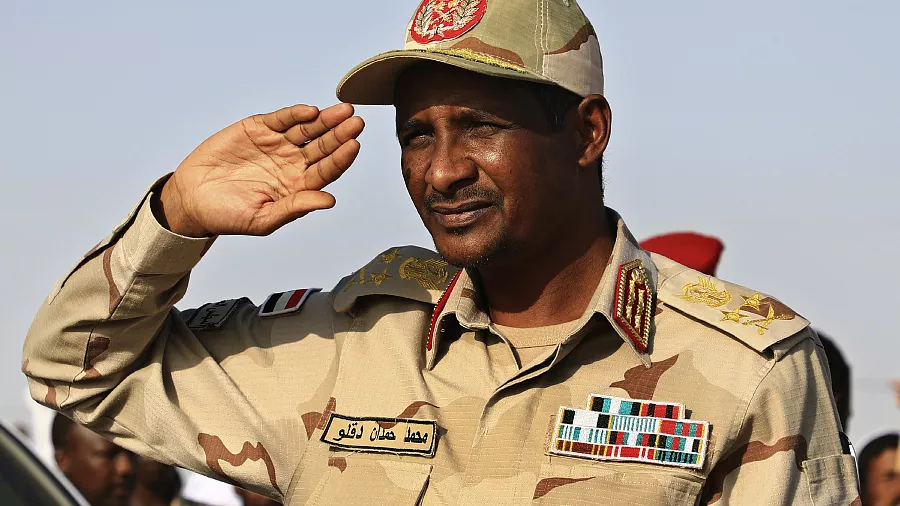Egypt Asserts Neutrality Amid Sudan Conflict, Denies Military Involvement
3 min read

Egypt has officially denied allegations of military involvement in Sudan’s ongoing conflict, emphasizing its commitment to ending the war and protecting civilians. The statement from Cairo’s foreign affairs ministry highlighted that Egypt’s primary focus is on humanitarian efforts rather than engaging in the hostilities.
“These allegations come amid intensive Egyptian moves to stop the war, protect civilians, and strengthen the international response to humanitarian relief plans,” the ministry stated. The remarks come in response to claims made by the head of the Rapid Support Forces (RSF), Mohamed Hamdan Dagalo, known as Hemedti, who accused Egypt of conducting airstrikes against his forces.
In a video message released on Wednesday, Hemedti asserted that Egyptian warplanes and drones targeted RSF positions in the Jabal Moya mountain range. This area connects the Sudanese states of Sennar, Al-Jazirah, and White Nile. According to Hemedti, Sukhoi 29 fighter jets allegedly bombarded RSF positions for several hours on October 5, enabling the Sudanese army to regain control over the region.
This is not the first instance in which Hemedti has suggested Egyptian involvement in the conflict, raising concerns about Cairo’s potential influence in Sudan’s civil strife. As the war in Sudan approaches its second year, the humanitarian situation has worsened dramatically, resulting in tens of thousands of deaths and displacing over 10 million people. Both warring factions have faced accusations of committing serious human rights abuses during the conflict.
The Sudanese army, led by General Abdel Fattah al-Burhan, has been making significant advances against the RSF since mid-September, reclaiming territory previously held by the paramilitary group. In recent statements, al-Burhan has demanded the disarmament of rebel forces as a prerequisite for any potential negotiations aimed at resolving the ongoing conflict.
Cairo’s response to these allegations comes at a time when the international community is increasingly focused on the dire humanitarian crisis in Sudan. With millions displaced and the situation worsening, Egypt has positioned itself as a key player in mediating the conflict, although its motives are now under scrutiny due to Hemedti’s accusations.
While Egypt asserts its neutrality, the complex dynamics of the Sudanese conflict involve numerous regional and international players, complicating efforts toward peace. Hemedti’s claims may reflect underlying tensions in the region, particularly regarding Sudan’s relationships with neighboring countries and the involvement of external actors in the conflict.
Humanitarian agencies have expressed deep concern over the escalating violence and the severe impact on civilians. The ongoing conflict has devastated infrastructure, leading to shortages of food, clean water, and medical supplies. As Egypt emphasizes its commitment to humanitarian relief, the effectiveness of its interventions will be crucial in shaping perceptions of its role in the conflict.
Moreover, both the Sudanese army and the RSF have faced allegations of war crimes, complicating the landscape for potential negotiations. The cycle of violence shows no signs of abating, and civilians remain caught in the crossfire as both sides seek to assert control.
The international community has called for an immediate cessation of hostilities and for both parties to engage in meaningful dialogue. As these developments unfold, Egypt’s stance will be closely monitored, especially as it seeks to balance its diplomatic efforts with its regional security interests.
In summary, while Egypt has categorically denied any military involvement in Sudan’s conflict, the accusations from RSF leader Hemedti pose challenges to its claims of neutrality. The humanitarian situation in Sudan remains critical, and as the war continues, the need for comprehensive solutions becomes increasingly urgent. Egypt’s role as a mediator and its commitment to humanitarian assistance will be tested as the international community watches closely to see if these efforts can lead to a resolution in one of Africa’s most pressing crises.